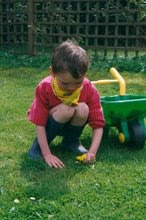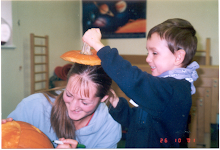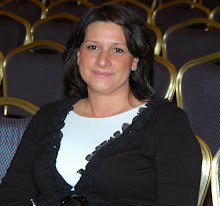 "When parents say they would go to the ends of the Earth to help their children, it's usually a figure of speech. But that is literally what Rupert Isaacson does with his wife and their five-year-old autistic son in The Horse Boy, the story of an American family's quixotic journey to the far reaches of Mongolia. It's a film that will both captivate and divide audiences.
"When parents say they would go to the ends of the Earth to help their children, it's usually a figure of speech. But that is literally what Rupert Isaacson does with his wife and their five-year-old autistic son in The Horse Boy, the story of an American family's quixotic journey to the far reaches of Mongolia. It's a film that will both captivate and divide audiences.The emotionally stirring feature documentary premiered at the Sundance Film Festival earlier this year, then went on to play the South by Southwest festival in Austin, Tex., (where it won the audience prize) and Toronto's Hot Docs before Isaacson's autobiographical book of the same title was published in May.
So the film is not based on the best-selling book but is an essential travel companion, providing lyrical moving images of a landscape and people rarely visited by outsiders and, more importantly, the editorial “distance” of director-cinematographer Michel Orion Scott's lens.
Isaacson is the driving force behind both book and film. A journalist and human-rights activist who has written non-fiction books about the Kalahari Desert bushmen, Isaacson was living outside Austin with his wife Kristin Neff, a psychology professor, when their son Rowan was born in 2001. At age two, he was diagnosed with autism. The feeling, Isaacson says in the narration, was “like being hit over the head with a baseball bat.”
As Rowan began “drifting away,” his inconsolable tantrums growing worse, he also developed a profound bond with animals, in particular a neighbour's stubborn old horse. Isaacson, who trained horses when he was young and had witnessed the Kalahari bushmen solve health and spiritual problems through shamanic healing, hatches a plan to take the family to Mongolia, where horseback riding and shamanism remain strong traditions with its nomadic peoples.
Isaacson received a hefty publishing advance, allowing him to finance the 2007 trip and hire Scott, with whom he was collaborating on a different project. (Most of the advance was used afterward to found an equestrian centre.) To some, this will smack of a vanity project, and indeed Isaacson, the film's producer, is cast as the central romantic figure. But Scott's choices in the field and with the editor allow room for viewers to decide whether Isaacson is a humble father-hero or reckless, self-absorbed dad.
At a few key points, a chorus of leading experts interjects to help define autism (typically described as a spectrum of neuro-developmental disorders) and its behaviours – some of which we see through flashbacks to Rowan's home life. More interestingly, the experts reflect on the notion of using animals for healing, how environmental change can “spike” development, and how differently Western and traditional societies treat people with neurological and psychological issues.
While it's clear Rowan's parents aren't expecting to cure their son – the mother's role is the reluctant but loving skeptic – you feel keenly that they hope for some kind of miracle. As the trek progresses, they reveal more modest dreams: Isaacson would like Rowan to feel the “freedom” of riding by himself; Neff would like him to be toilet-trained.
Various breakthroughs (Rowan befriends their guide-interpreter's son) and setbacks happen on the journey, which culminates in a fascinating encounter with the nomadic reindeer people and their legendary shaman.
While The Horse Boy does not suggest parents should emulate Isaacson – indeed few would have the luxury or the nerve – or eschew Western-style treatments, the film's particular story serves as a powerful reminder to all parents that a child's unique strengths and personality may suggest the best path toward healing."
by Jennie Punter
Published on Thursday, Nov. 12, 2009 1:28PM EST
http://www.theglobeandmail.com/news/arts/the-horse-boy/article1361043/

http://movies.nytimes.com/2009/09/30/movies/30horse.html
http://www.horseboymovie.com/Book.php


 Practical Tools to Support Professional
Practical Tools to Support Professional 











